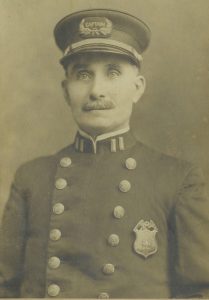New Jersey employment law provides that non-tenured educators must receive written notice that their employment contracts will not be renewed by May 15th or their contracts will be deemed to be renewed for the coming school year. A New Jersey appeals court recently issued a decision examining the procedure and consequences of the non-renewal of an assistant principal after failing to give her the required timely written notice in the case of Adeyin vs. Board of Education of the City of Orange.
Background
Ehimwenma Adeyin was a non-tenured assistant principal at Rosa Parks Community School in Orange, New Jersey. She began work in 2023, and her contract was renewed for the 2023-2024 school year. She was permitted to participate in a two-year program to obtain a certificate from the New Jersey Department of Education for the position of principal.
 New Jersey Lawyers Blog
New Jersey Lawyers Blog


 New Jersey Supreme Court issued an opinion in the case of Extech Building Materials, Inc. vs. E&N Construction, Inc., explaining the requirements of an enforceable personal guaranty under New Jersey contract law. The main element is that the guarantor must clearly and unambiguously express its intent to personally guarantee the third-party’s obligation.
New Jersey Supreme Court issued an opinion in the case of Extech Building Materials, Inc. vs. E&N Construction, Inc., explaining the requirements of an enforceable personal guaranty under New Jersey contract law. The main element is that the guarantor must clearly and unambiguously express its intent to personally guarantee the third-party’s obligation.

 additional items to be included. A written change order to the original signed contract was drafted, but the change order was never signed. In January 2020 the home passed final inspections, and EMC’s owner, Edward Morgan, advised Dattolo that he could not continue working on the project. Dattolo refused to pay “one additional cent,” and complained that there were numerous construction defects which would cost him thousands of dollars to remediate.
additional items to be included. A written change order to the original signed contract was drafted, but the change order was never signed. In January 2020 the home passed final inspections, and EMC’s owner, Edward Morgan, advised Dattolo that he could not continue working on the project. Dattolo refused to pay “one additional cent,” and complained that there were numerous construction defects which would cost him thousands of dollars to remediate.
 Tax”. Pursuant to the prior legislation, adopted in 2004, residential properties and certain commercial properties which sold for over $1 million in New Jersey were subject to a “Mansion Tax” which required the buyers of the real estate to pay 1 percent of the purchase price to the State of New Jersey.
Tax”. Pursuant to the prior legislation, adopted in 2004, residential properties and certain commercial properties which sold for over $1 million in New Jersey were subject to a “Mansion Tax” which required the buyers of the real estate to pay 1 percent of the purchase price to the State of New Jersey.